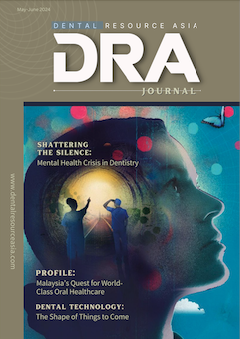NEW ZEALAND: The country faces scrutiny from health experts as an expert panel notes its delay in introducing excise taxes on unhealthy foods, unlike its Pacific neighbours who have embraced such measures.
Global Trend on Sugary Drinks Tax
Sugary drinks tax policies, used by over 100 countries globally, are seen as a pivotal tool in combatting obesity and related lifestyle disorders.
The Briefing, a flagship publication of the Public Health Communication Centre, reveals that many Pacific countries have been implementing sugary drinks tax policies for over two decades. French Polynesia, Tonga, Samoa, Vanuatu, and New Caledonia have all taken steps to tax unhealthy imported and locally-made foods.
 Click to Visit website of India's Leading Manufacturer of World Class Dental Materials, Exported to 90+ Countries.
Click to Visit website of India's Leading Manufacturer of World Class Dental Materials, Exported to 90+ Countries.
New Caledonia’s Progressive Tax Approach
New Caledonia, for instance, implemented an excise tax targeting various unhealthy foods, graded by sugar content. The evidence indicates that such taxes influence consumption patterns positively.
Tonga’s experience demonstrates a decline in sugary drink imports, a surge in water consumption, and reduced spending on soft drinks, particularly among low-income households. The health benefits are apparent, with American Samoa witnessing additional Quality Adjusted Life years per 1000 people over their lifetime.
Taxing unhealthy foods, as recommended by the World Health Organization (WHO), also contributes to health equity. Low-income households tend to shift away from high-priced unhealthy food products, fostering a healthier lifestyle.
Integrating Tax with Health Initiatives
The report stresses that taxes on sugary drinks must be coupled with strategic investments in areas promoting a healthy food environment.
Suggestions include extending funding for programs like Ka Ora Ka Ako, free healthy school lunches, and subsidizing and improving access to fruits and vegetables, aligning with the 64% of New Zealanders supporting sugary drinks tax if revenues enhance healthy food availability and affordability.
Pacific Islands countries exemplify the link between tax revenue and health initiatives, utilizing funds for education and health promotion campaigns. New Zealand is urged to follow suit, aligning with global trends and maximizing health benefits through these proven strategies.
The information and viewpoints presented in the above news piece or article do not necessarily reflect the official stance or policy of Dental Resource Asia or the DRA Journal. While we strive to ensure the accuracy of our content, Dental Resource Asia (DRA) or DRA Journal cannot guarantee the constant correctness, comprehensiveness, or timeliness of all the information contained within this website or journal.
Please be aware that all product details, product specifications, and data on this website or journal may be modified without prior notice in order to enhance reliability, functionality, design, or for other reasons.
The content contributed by our bloggers or authors represents their personal opinions and is not intended to defame or discredit any religion, ethnic group, club, organisation, company, individual, or any entity or individual.

